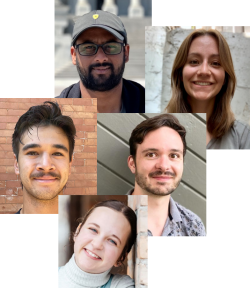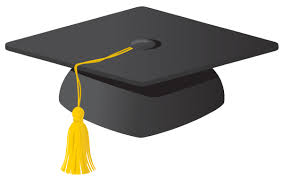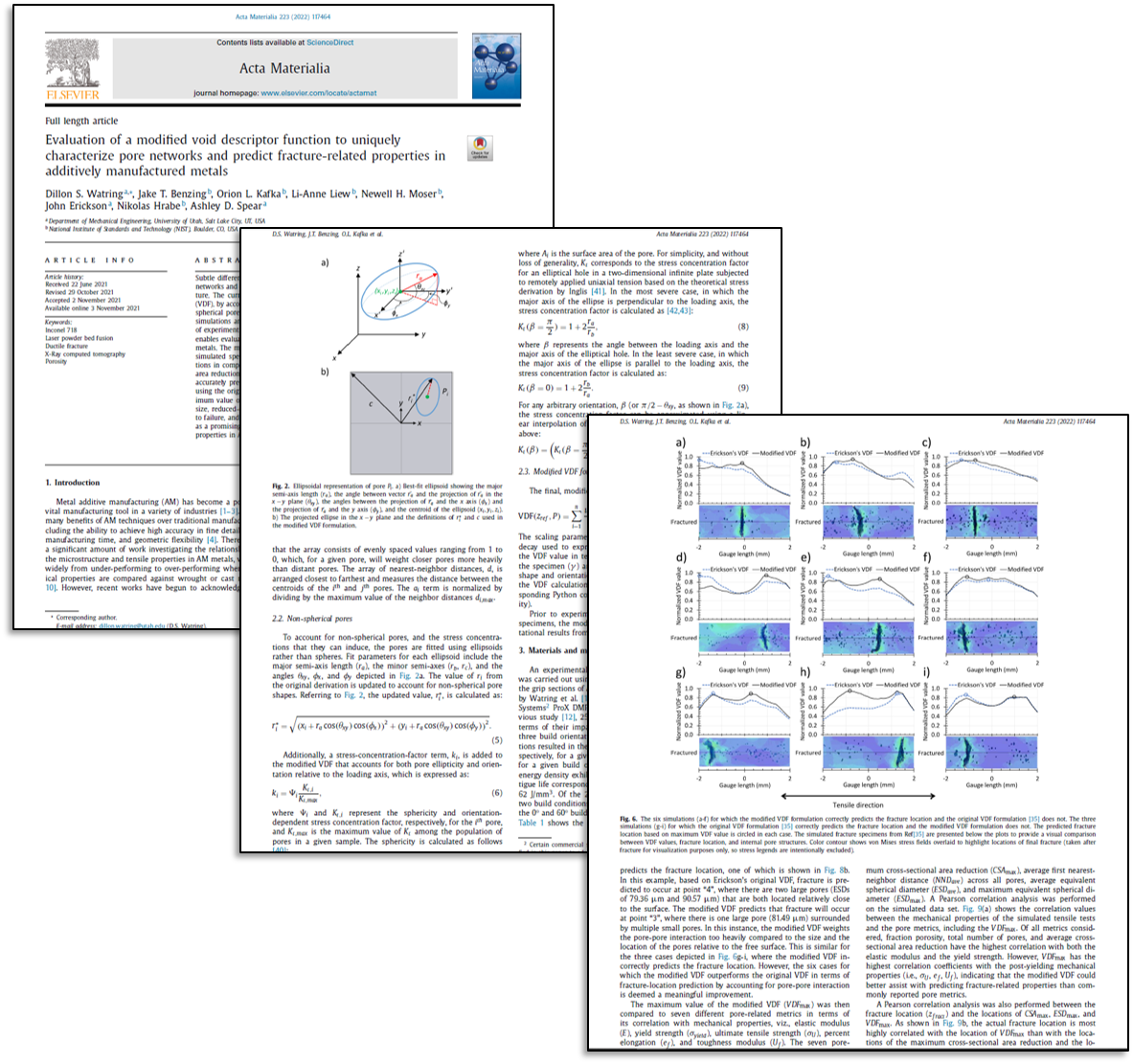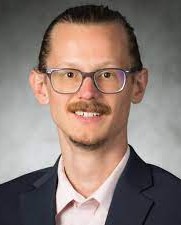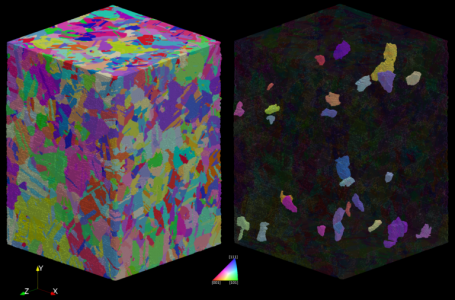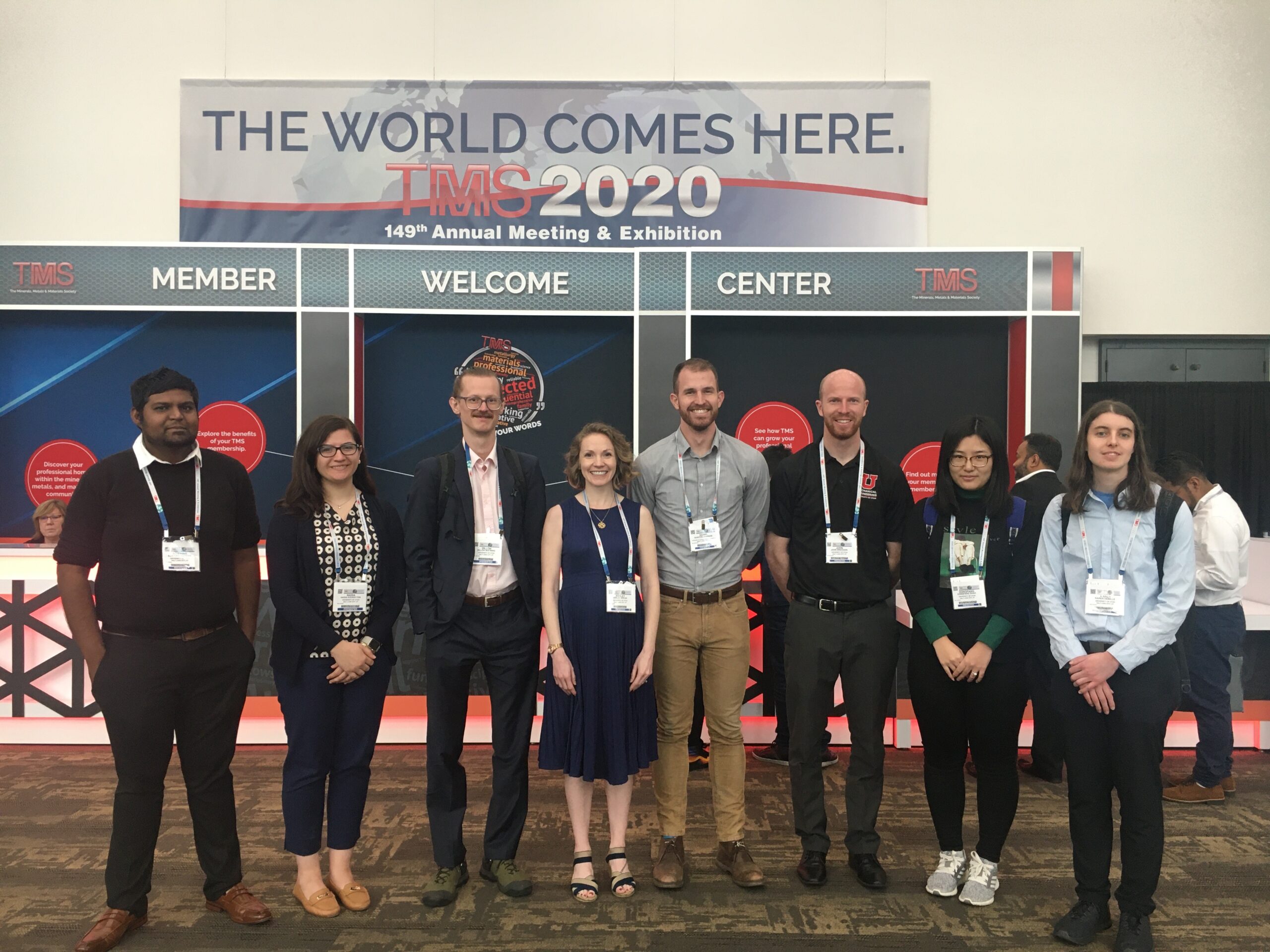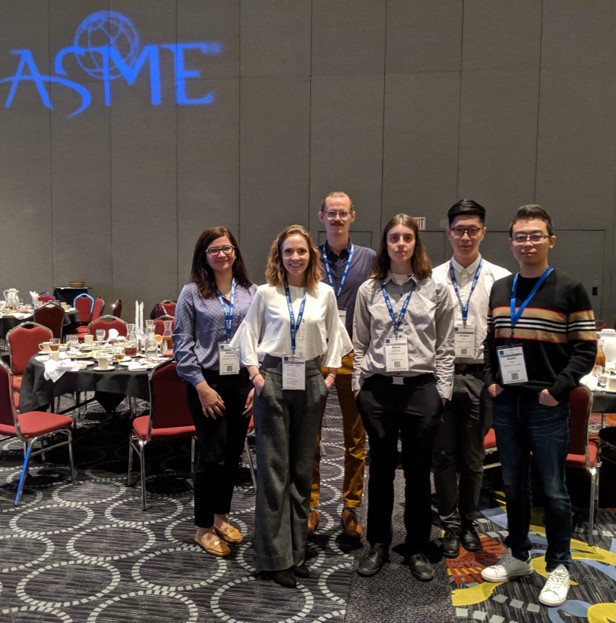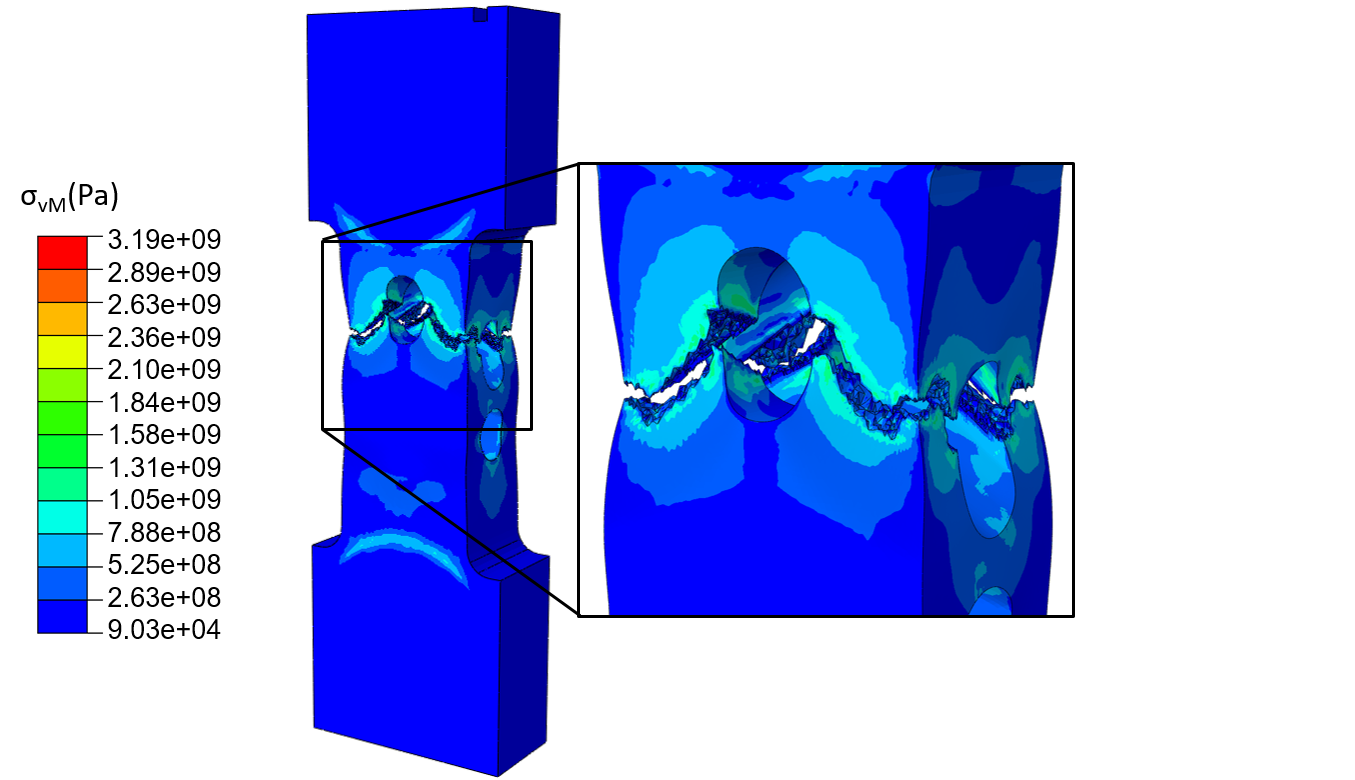MMM Lab members recently presented work at the TMS Annual Meeting in San Diego, CA. The following presentations included MMM Lab members: Predicting Microstructurally Sensitive Fatigue-crack Path in WE43 Magnesium Using High-fidelity Numerical Modeling and Three-dimensional Experimental Characterization: Brian Phung, Duncan Greeley (Univ. of Michigan), Mohammadreza Yaghoobi (Univ. of Michigan), John Allison (Univ. of Michigan), Ashley Spear Accelerating Microstructurally Small Crack Growth Predictions in Three-dimensional Microstructures Using Deep Learning: Vignesh Babu Rao, Brian Phung, Bjorn Johnsson, Ashley Spear Predicting Microstructure-sensitive Fracture Behavior in AM IN625 Using a Damage-enabled Elasto-viscoplastic FFT Framework: Ashley Spear, Carter Cocke, Brian Phung, Laura Ziegler,...
Continue readingMMM Lab welcomes five new members
The MMM Lab recently welcomed Dr. Krishna Prasath Logakannan, Claire Ticknor, Jake Hirst, Bjorn Johnsson, and Allie Richards. Dr. Krishna Logakannan joins the lab as a postdoctoral researcher after earning his Ph.D. in 2021 at IIT Madras and the India & Swinburne University of Technology. He later moved to Johns Hopkins University where he was a member of the Hopkins Extreme Materials Institute prior to joining the MMM Lab at Utah. Claire Ticknor joins the lab as a Ph.D. student. She is originally from Los Alamos, New Mexico, and earned her B.S. degree in Mechanical Engineering at the...
Continue readingCongratulations to Dr. Karen DeMille and Carter Cocke!
We are pleased to announce the graduation of MMM Lab members Karen DeMille and Carter Cocke. Karen DeMille successfully defended her Ph.D. dissertation entitled Establishment of Representative Volume Elements for Microstructurally Small Cracks Using Numerical Simulation and Machine Learning. In her dissertation, she explores the question: “What is the minimum volume of microstructure needed to accurately capture the fields around a microstructurally small crack?”. Since graduating, she has been working as a Research Mechanical Engineer at the Air Force Research Laboratory (AFRL). Congratulations, Dr. DeMille! Carter Cocke successfully defended his M.S....
Continue readingNew work on Void Descriptor Function published in Acta Materialia
Recent MMM Lab graduate, Dillon Watring, and collaborators from the National Institute of Standards and Technology (NIST) published work on the extension and experimental evaluation of a void descriptor function, or VDF. The VDF is intended to provide a unique parameter to characterize complex void networks in structural metals, including additively manufactured metals. Compared to other pore-related metrics reported in the literature, the VDF parameter has been shown to be more strongly correlated with ductile-metal failure properties, including fracture location. Click here to learn more!...
Continue readingCongratulations to Dr. Dillon Watring!
Congratulations to MMM Lab member, Dillon Watring, who successfully defended his Ph.D. dissertation this year and was awarded a prestigious postdoctoral fellowship from the National Research Council (NRC) to conduct research at the Naval Research Laboratory. Dillon’s dissertation is entitled Multiscale Characterization of Process-Structure-Property Relationships in Additively Manufactured IN718 and can be downloaded here. Congratulations, Dr. Watring! ...
Continue readingMMM Lab & Collaborators Named Top Performer in National Additive Manufacturing Modeling Challenge
MMM Lab & collaborators were named a Top Performer in a national additive manufacturing modeling challenge hosted by the Air Force Research Laboratory and America Makes. University of Utah mechanical engineering associate Professor Ashley Spear, undergraduate researcher Carter Cocke, Prof. Anthony Rollett from Carnegie Mellon University, and Dr. Ricardo Lebensohn from Los Alamos National Laboratory are a U led team and awardees of the America Makes and Air Force Research Laboratory (AFRL) Additive Manufacturing Modeling Challenge Series. The goal of the Challenge Series was to improve the accuracy of model predictions for metal, using INCONEL® nickel-chromium alloy 625 (IN625)....
Continue readingCongrats to Carl, John, and Jimmy!
Congratulations to Carl Herriott, John Erickson, and Junyan “Jimmy” He for successfully completing their M.S. degrees! Carl, John, and Jimmy have made significant contributions to the MMM Lab and to the literature in their fields. We are very proud of all three graduates and wish them the very best in their careers. Carl’s thesis, entitled Predicting Spatial Variability of Mechanical Properties in Additively Manufactured Metals with Multiphysics Modeling and Machine Learning, includes two journal articles, which can be accessed below. Carl is currently employed at Sandia National Laboratories in Livermore, CA. Herriott, C.F., Li, X., Kouraytem, N., Tari, V.,...
Continue readingMMM Lab represents at TMS annual meeting
MMM Lab members recently presented work at the TMS Annual Meeting in San Diego, CA. The following presentations included MMM Lab members: Determination of Representative Volume Elements for Small Cracks in Heterogeneous Domains via Convolutional Neural Networks: Karen DeMille, Ashley Spear Predicting Crack Location Using a Radial Distribution Function as a Unique Descriptor of Pore Networks: John Erickson, Aowabin Rahman, Ashley Spear Characterization of Fatigue Short Crack Growth in Rare-earth Magnesium Alloy WE43 using High Energy X-ray Diffraction Microscopy: Duncan Greeley (Univ. of Michigan), Jacob Adams (Univ. of Michigan), Peter Kenesei (Argonne National Laboratory), Ashley Spear, John Allison (Univ. of...
Continue readingFive talks at ASME IMECE
MMM Lab members (Dr. Nadia Kouraytem, Dillon Watring, Karen DeMille, Jimmy He, and Jiawei Yan) presented their recent research results at the ASME International Mechanical Engineering Congress & Exposition (IMECE) held in our hometown, Salt Lake City. Prof. Spear also sat on a panel aimed at helping new and aspiring faculty members. ...
Continue readingClass of 20 Students Participates in the Sandia Fracture Challenge
A recent article in the International Journal of Fracture details the results and experience of a class’ participation in the Third Sandia Fracture Challenge (SFC3). In the spring semester of 2017, 20 University of Utah graduate students who were enrolled in a course on Fatigue and Fracture Mechanics (offered by Prof. Ashley Spear) participated in the Challenge, in which all participants were tasked with predicting ductile fracture in a 3D-printed stainless steel specimen geometry. The participants were provided with data from Sandia National Labs to help calibrate their models and were asked to provide local and global measures from...
Continue reading

